Sitting close to the watershed area between its author's domestic and global success, “God of Cookery” is another brilliant comedy from popular Hong Kong national treasure Stephen Chow, that reconfirms how well he has nailed his comedy shticks, elevating them to near perfection. A loose parody of “God of Gamblers” with Chow Yun-fat (which Chow loves to mock with affection) and inspired by the growing success of celebrity chefs, food porn, and other culinary-themed films and shows like “The Chinese Feast” and “Iron Chef”, here Chow styles himself as Sik San, the God of Cookery.
“God of Cookery“ is screening at the NYAFF Winter Showcase 2020

Sik San is indeed a God in his business as he detains the supreme power of fixing culinary contests, inventing the silliest reasons to eliminate everybody else and therefore winning the title over and over again. Arrogant and condescending, he is also the face of a dodgy instant food franchising, selling poorly made – almost poisonous – products and getting his fair share of wealth. However, beyond all this faff, the reality is that Sik San is more a con-artist than a professional chef and it doesn't take long for him to be forced to face the consequences of his own chutzpha. The seemingly humble cook Bull Tong (Victor Kok), begging to become his assistant and repeatedly humiliated and ridiculed by Chow, soon turns out to be a skilled and business-orientated chef who – secretly teaming up with Chow's business partner (Ng Man-Tat) – manages to take over the God of Cookery empire and rapidly reduce Chow to poverty.
Penniless – but still irreducibly cocky – he ventures the dark paths of Temple Street Market looking for cheap grub and comes across the energetic and temperamental street food vendor Sister Turkey (Karen Mok), once in love with the former God of Cookery. With her help and her contacts with the local mafia, Chow seems to regain some creative energy and invents the excellent Explosive Pissing Beef Balls, a product so good to threaten his former business partners to the point they hire an assassin to eliminate the competition. This turn of events forces Chow to escape to Mainland and end up in a Shaolin Temple, a mix of kung-fu and cooking school, where he will get beaten to a pulp several times by a bunch of brass-tinted monks while mastering the necessary skills and get ready to claim back his title in a final showdown with Bull Tong.

Comedian Stephen Chow is often associated to a comedy genre that became very popular in the 70's called Mo Lei Tau. Often translated as “makes no sense”, the definition comes from the Cantonese phrase “mo lei tau gau”, which literally means “cannot differentiate between head and tail”. The strange idiom, in reality is the best description of a genre that Chow has turned into his trademark in the 80's and 90's. This non-sense routine plays in fact on the incongruity between the expectation and the actual outcome of a joke; basically, the logic of the set-up is not followed up by the final punchline that comes abruptly from nowhere, making the whole joke absurd and – yes – funny!
Chow has mastered this method while at the same time refining a template-character of himself and a recurring arc of rise-fall-redemption, ready to be re-cycled it in several parodic sauces. It all sounds formulaic and repetitive and it is, but, guess what? It is really funny and Chow does it really well. “The God of Cookery” is a step up, a polished effort, comparing with the previous comedies and it anticipates the success of “Shaolin Soccer” and “Kung-fu Hustle”. This high-energy rollercoaster throws in the cauldron all sorts of themes and genres; there is a pinch of corporate world satire, some romance, a handful of kung-fu, action, triad brotherhood, lots of references to films and actors and some cheeky religious hints. It is a messy lot to orchestrate but Chows succeeds and stays on top of it with directorial command and his usual acting aplomb.

Some may rise an eyebrow at ugly Sister Turkey's character. Being so defined by some specific physical attributes, she probably would not pass the PC test today; however, her character is the strongest of the whole movie, her presence is funny, she is a challenge for the protagonist and his real vehicle. Finally, to be fair (spoiler alert) Chow falls in love with her way before her metamorphosis. Actress-singer Karen Mok plays along with tongue in cheek and builds up the most multifaceted presence of the narrative, the other satellite characters being often one-dimensional but still functional to the slapstick routine that glues all together. And once again, kudos to Stephen Chow the director and Stephen Chow the actor.
Many jokes are based on puns of Cantonese vernacular, another distinguishing trait of Mo Lei Tau and the cultural identity that Hongkongers have placed in it, but the physicality and the aforementioned absurdity make them very accessible to a non-Cantonese-speaking audience. Still today, some memorable hijinks are the humble foldable market chair, treated as a weapon with its own established kung-fu moves, the 18 Brassmen of Shaolin Monastery and their dean called “Wet Dream”, the slow-motion run on the beach at sunset (a shampoo commercial riff) to show the ecstasy of the senses, and the bossy judge (veteran Nancy Sit) of the final cooking duel.
In conclusion, be ready and aware, “God of Cookery” is a 92-min ride of silliness and great fun.


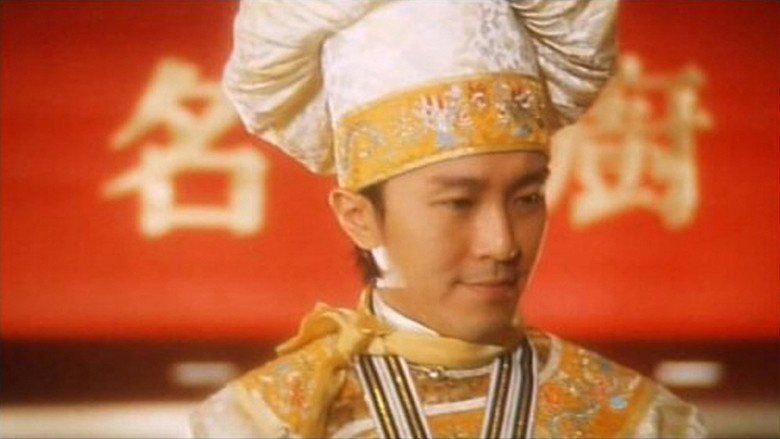
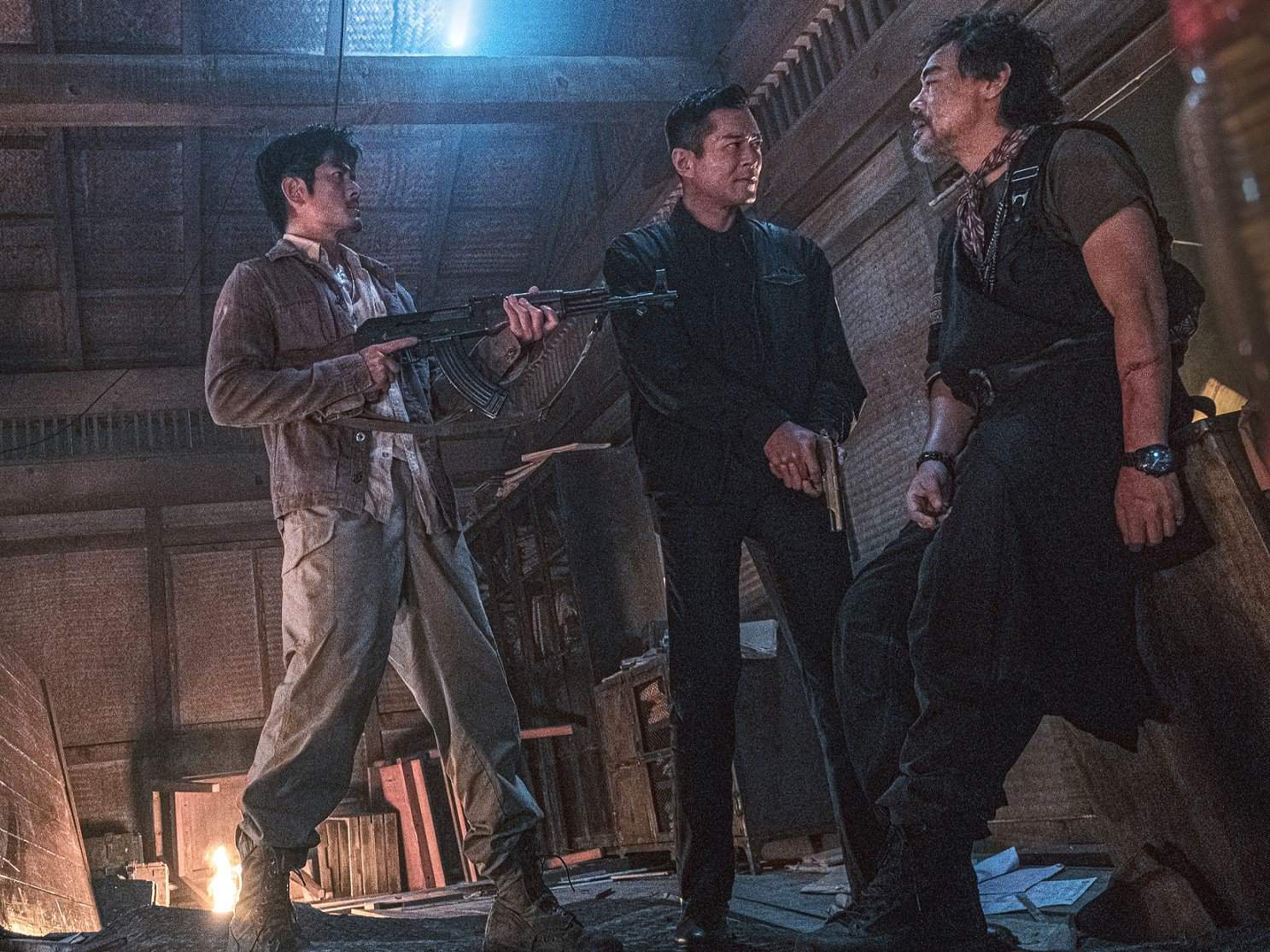
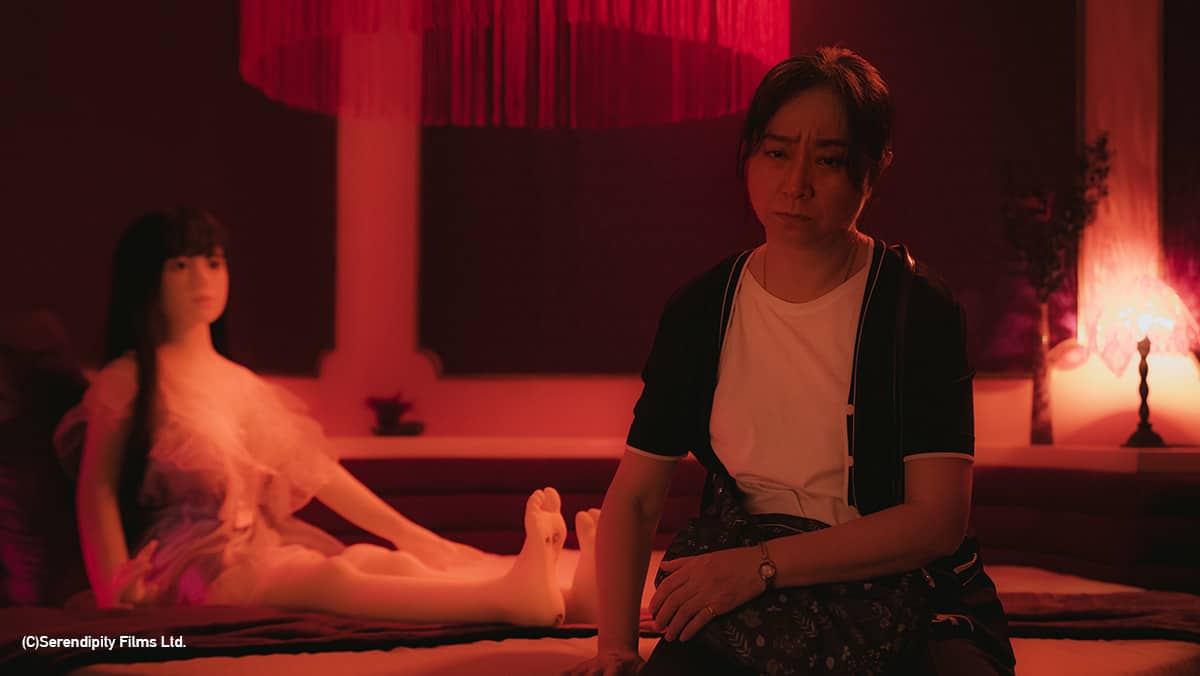


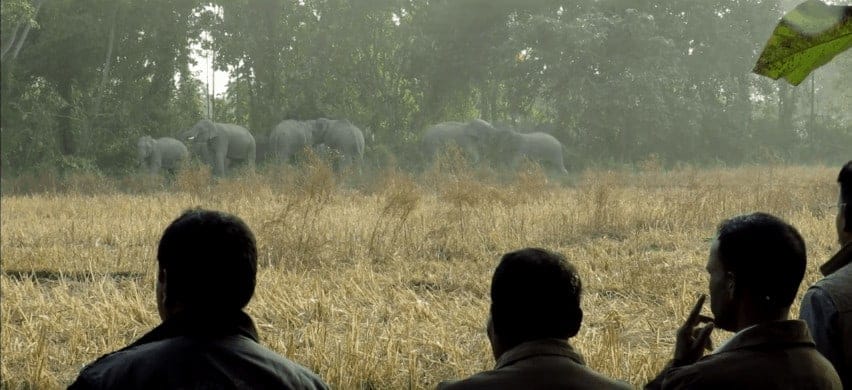
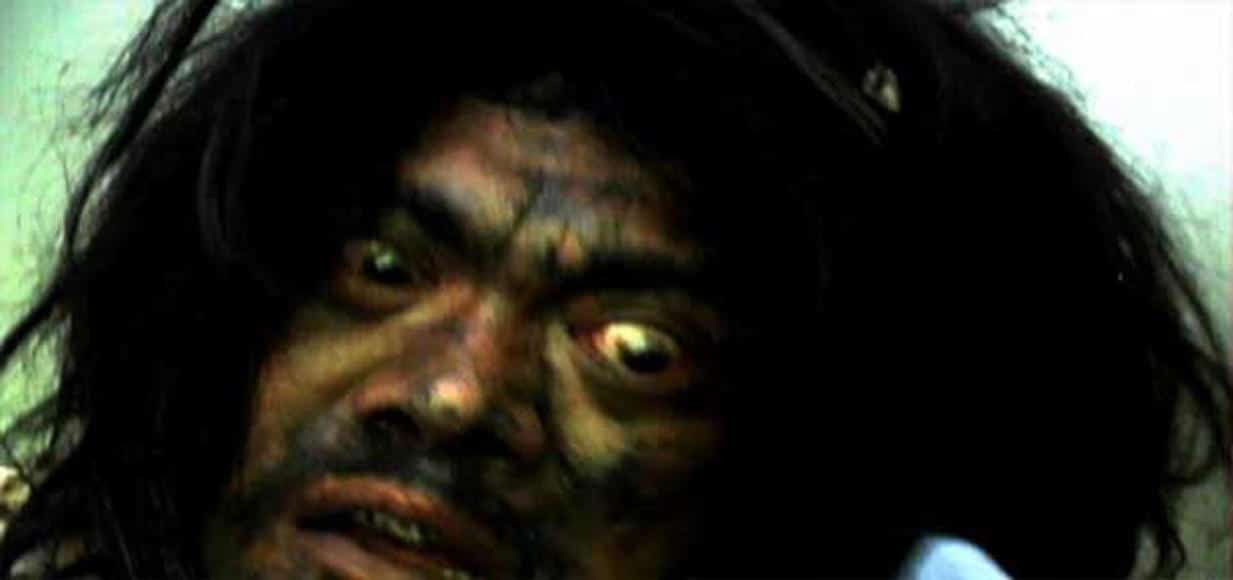







This was the first Chow Sing-Chi movie I ever saw (at the late, lamented Chinatown Cinema in Sydney) and it remains probably my favourite.
I got none of the verbal humour but the visuals and the gags were so hilarious I don’t feel like missed much.
I’m still more of a Shaolin Soccer fan myself, but you’re right — Stephen Chow’s humor crosses all borders :’-) Truly a great film!